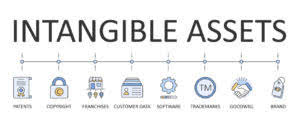
QuickBooks offers a range of features that can be helpful for businesses in the SaaS industry, including invoicing, expense tracking, and reporting. Very importantly, it integrates with other business tools, such as payment processors and CRM systems, which can be useful for a SaaS company and that can automate manual data entry. Since SaaS businesses sparked nearly two decades ago, customers and service providers have benefited from the convenience of subscription-based services. Customers get valuable services for low monthly fees, while providers benefit from predictable monthly (or annual) incomes. It’s also important to recognize that even the best accounting software is augmented by a dedicated human team Finvisor offers online bookkeeping managed by a team of real, qualified, and experienced accountants. Founder’s CPA is a public accounting firm that provides personalized services to venture-backed startups with an industry expertise in blockchain, cryptocurrency, FinTech, and SaaS.
It’s also used to measure the performance of sales teams and the overall health of the business. Larger ACVs usually unlock more expensive and elaborate sales and marketing activities. Along with the functional benefits of good accounting, reliable accounting streamlines the process of raising venture capital funds or preparing your business for an exit. Suppose your startup does not have clear, reliable financial records and up-to-date financial statements (like profit and loss statements, balance sheets, or cash flow statements). You may have a hard time raising capital, delay the fundraising due diligence process, or take a hit on your earnings in the event of an exit. Through our work with hundreds of funded startups, we realized that VC backed businesses like to purchase all their services like a SaaS business.
Our team of industry experts understands your business and are uniquely positioned to provide valuable advice for your startup.
To accurately calculate the gross margin, it is important to track and account for these costs appropriately. Companies that try to fully automate their MMR recognition often find that their payments processor has a different metric than their accounting system – something that experienced VCs will notice during due diligence. Revenue is the lifeblood of SaaS businesses, but the accounting is anything but simple. Later on in this article on SaaS accounting we’ll discuss what goes into calculating ARR, but here we’ll discuss how revenue is recognized, and the different flavors of revenue that founders and VCs like to track.
They may DIY their books, but should work with a CPA firm to file taxes and ensure state and local tax compliance. VC-backed businesses typically choose to outsource their bookkeeping and tax preparation/compliance https://www.bookstime.com/ to experienced CPA firms. QuickBooks makes it easy for early-stage founders to track and analyze their financial data because it offers a range of built-in reports and allows for customization.
Professional Services
For SaaS startups, headcount is usually the largest expense, so project your personnel needs accurately. Additionally, estimate other expenses, using benchmarks from successful companies if needed. At a high level, working accounting services for startups capital is the difference between a company recognizes and expense or revenue and when it pays/collects the cash. Kruze is trusted by hundreds of companies, and we understand the unique challenges startups face.
- Our controllers and CFOs can help you manage important KPI like average contract values, committed MRR, CAC payback periods, CLTV, profit and growth, and capital efficiency.
- Even software that advertises SaaS-specific features is rarely a complete solution.
- This complexity is the main reason why you want an experienced SaaS accountant.
- Your Chart of Accounts will need to be tailored to your specific needs based on the level of detail you prefer.
- But FastSpring does more than just provide software for a few aspects of accounting — we’re Merchant of Record (MoR) for SaaS companies.
- SaaS businesses also use different accounting tools like subscription management software and recurring billing platforms.
- Before the 2022 round, DataSnipper had been funding its growth from its own sales.
While the LTV to CAC relationship and other metrics matter for both, enterprise-focused companies have to deal with other metrics like book to bill. And consumer focused businesses should be monitoring churn cohorts and other user data very closely. We are seeing plenty of slam-dunk seed rounds happening with SaaS startups that have $100k+ in ARR and good growth. However, this is significantly harder that the hot fundraising market of 2021. Prior to the second quarter of 2021, the average SaaS startup needed about $340k of ARR, with a 12 month trailing growth rate of about 600% to raise a seed round of financing. During the hot financing market, starting around Q2 2021, the average company needed just under $60k of ARR and was only growing at about 140% year over year – a tremendous drop on both size and growth metrics.

